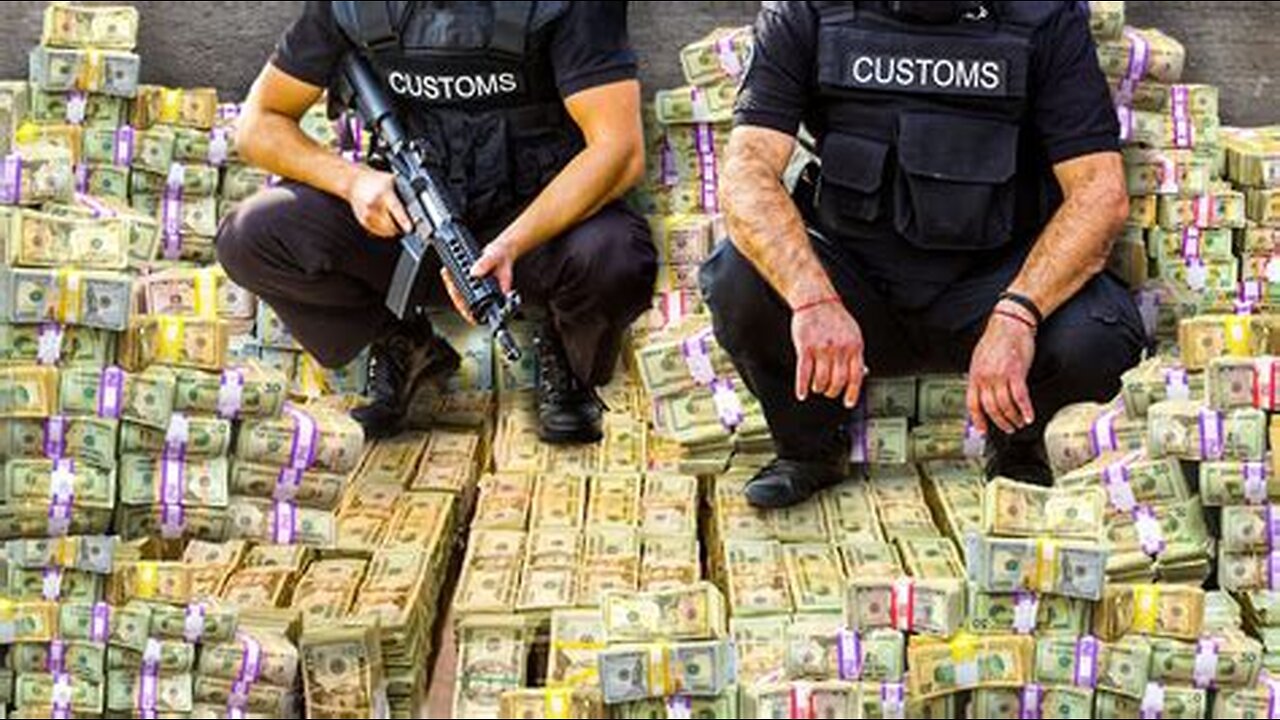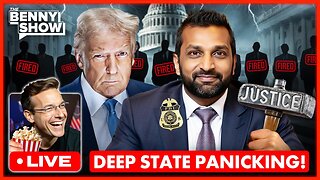Premium Only Content

DOJ Suspends DEA Airport Searches Amid Civil Rights Concerns
The U.S. Department of Justice’s (DOJ) decision to suspend the Drug Enforcement Administration’s (DEA) controversial airport search program is more than a policy change—it’s a pivotal moment for civil liberties in America. Sparked by a scathing report from the DOJ’s Office of the Inspector General (OIG) and subsequent public scrutiny, this decision highlights systemic flaws in law enforcement practices and raises pressing questions about the balance between security and individual rights.
I. Historical Context: The Roots of Interdiction Practices
To fully understand the significance of this suspension, we must examine its origins. The DEA’s airport search program emerged from the policies of the 1980s during the height of the War on Drugs.
• The War on Drugs Legacy: The interdiction tactics were part of a larger strategy to dismantle drug trafficking networks. While the program aimed to identify couriers and seize contraband, its aggressive methods often resulted in collateral damage to civil liberties.
• Asset Forfeiture Practices: A parallel policy, civil asset forfeiture, allowed law enforcement to seize cash or property suspected of being linked to criminal activity, often without pressing charges. This practice created financial incentives that critics argue prioritized revenue over justice.
II. The OIG Report: Exposing Systemic Failures
The OIG’s investigation into the DEA’s transportation interdiction program revealed significant deficiencies that raise concerns about its legality and effectiveness.
• Lack of Documentation: The DEA failed to record encounters unless cash or drugs were seized, undermining accountability. This lack of oversight created a system ripe for abuse.
• Racial Profiling Allegations: The report suggested that passengers were disproportionately targeted based on race or ethnicity, echoing long-standing concerns about biased law enforcement practices.
• Profit-Driven Policing: The revelation that airline employees acted as paid informants—earning a percentage of seized funds—exposed a troubling conflict of interest, incentivizing false or speculative reporting.
III. Civil Liberties Under Threat
The DEA’s practices raise critical constitutional questions about the limits of government authority.
• Fourth Amendment Violations: Warrantless searches conducted under the guise of “consent” challenge the protections against unreasonable searches and seizures. Many passengers, unaware of their rights, felt coerced into compliance.
• Fifth Amendment Concerns: The seizure of cash without criminal charges infringes on due process rights, raising ethical questions about the presumption of innocence.
IV. Financial Incentives: A Flawed System
The DEA’s reliance on financial incentives for informants highlights broader issues with asset forfeiture.
• Seizure Statistics: Between 2007 and 2016, the DEA seized over $4 billion in cash. Alarmingly, 80% of these cases did not result in criminal charges, emphasizing the disproportionate impact of these practices on innocent individuals.
• Potential for Abuse: Airline employees receiving cuts from seized funds created a profit-driven policing model, eroding trust in law enforcement and encouraging overreach.
V. The Broader Implications for Law Enforcement
The DOJ’s decision reflects a broader reckoning within law enforcement agencies and their relationship with the public.
• Rebuilding Trust: Addressing systemic flaws is critical to restoring public confidence, particularly among marginalized communities disproportionately affected by over-policing.
• Training and Oversight: The suspension of DEA training programs since 2023 suggests a need for immediate reforms to ensure agents are equipped to balance enforcement with civil rights.
VI. Lessons from Comparable Cases
The DEA’s controversy is not an isolated incident. Similar issues in other law enforcement agencies offer valuable lessons.
• TSA and Profiling: The Transportation Security Administration has faced criticism for racial profiling and invasive security measures, highlighting the need for consistent oversight across agencies.
• International Approaches: Countries like Germany and Canada have implemented stricter guidelines for law enforcement practices at transportation hubs, balancing security with transparency and accountability.
VII. A Path Forward: Ensuring Ethical Policing
The suspension of the DEA’s program provides an opportunity for meaningful reform.
• Enhanced Oversight: Establishing independent review boards can ensure accountability and transparency in interdiction practices.
• Civil Rights Training: Comprehensive training on implicit bias and constitutional rights is essential to prevent abuses and foster equitable enforcement.
• Community Involvement: Engaging civil rights organizations and affected communities in policy discussions can build trust and create more effective, fair practices.
VIII. The Bigger Picture: A Test of Democratic Values
The DOJ’s suspension of the DEA program is a reflection of a broader struggle to define the balance between liberty and security in a democratic society.
• The Balancing Act: Effective law enforcement must navigate the tension between combating crime and respecting constitutional protections. This case underscores the importance of policies that protect both public safety and individual rights.
• A Precedent for Reform: The decision sets a vital precedent for reevaluating other controversial practices, from stop-and-frisk policies to mass surveillance, reinforcing the need for accountability and transparency.
Conclusion: A Step Toward Justice
The DOJ’s directive to suspend the DEA’s airport search program marks a critical step toward addressing systemic injustices in law enforcement. It is a victory for civil liberties and a reminder that accountability must remain at the heart of democratic governance.
As the DEA reforms its practices, this moment challenges all law enforcement agencies to prioritize justice and transparency. It underscores the delicate balance required to protect both security and the constitutional rights that define American democracy. By confronting these challenges head-on, the U.S. has the opportunity to reaffirm its commitment to fairness, equity, and the rule of law.
-
 1:57
1:57
FragmentsOfTruth
3 days agoThe Hidden Jewish Legacy of Magic's Greatest Icons: Blaine, Houdini, and Copperfield
341 -
 1:00:47
1:00:47
The Dan Bongino Show
3 hours agoWhat Did Zelensky Know? When Did He Know It? (Ep. 2426) - 02/19/2025
466K718 -
 45:27
45:27
Benny Johnson
2 hours ago🚨Kash Patel WINS Critical FBI Director Confirmation Vote as Trump MASS FIRES Deep State Prosecutors
55K42 -
 1:08:01
1:08:01
Timcast
3 hours agoDemocrats PANIC Over Trump Order To "Seize Control" Of Federal Agencies, Trump Asserts FULL Control
106K60 -
 55:32
55:32
MYLUNCHBREAK CHANNEL PAGE
18 hours agoA Little Help From Angels?
41.7K13 -
 LIVE
LIVE
LFA TV
16 hours agoLET'S KASH IN! | LIVE FROM AMERICA 2.19.25 11AM
5,066 watching -
 1:37:54
1:37:54
Caleb Hammer
2 hours agoChildish Couple Won’t Stop Cheating On Each Other | Financial Audit
27.8K1 -
 2:16:08
2:16:08
Matt Kohrs
13 hours agoMarket Open: Key Options Levels & Breaking News || The MK Show
45.8K1 -
 42:49
42:49
BonginoReport
6 hours agoBlasphemy: Hollywood Casts Queer Female Jesus (Ep.143) - 02/19/2025
116K195 -
 2:59:05
2:59:05
Wendy Bell Radio
8 hours agoGETTING IT DONE
84.3K50